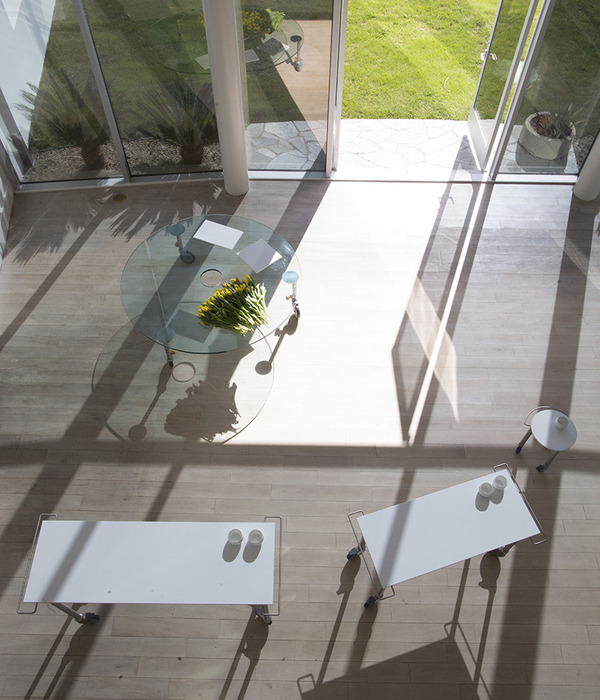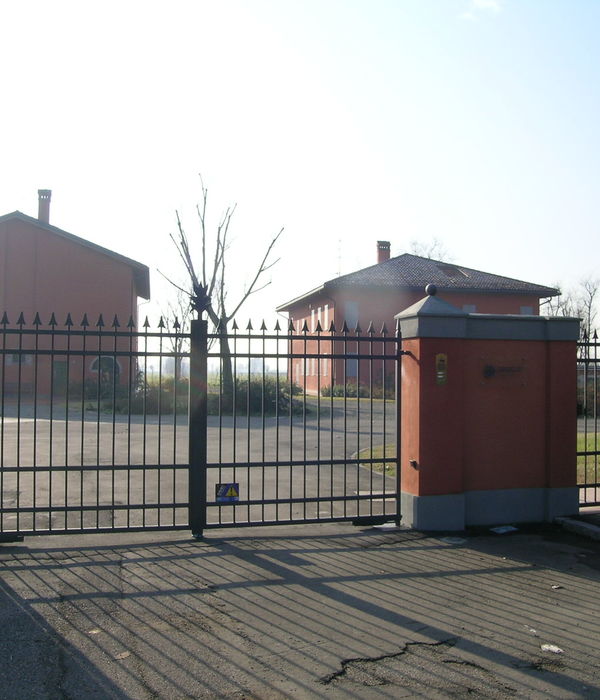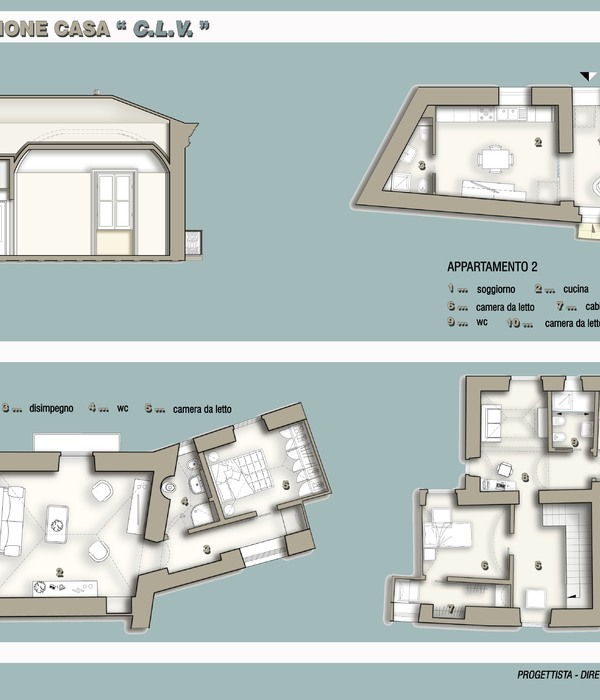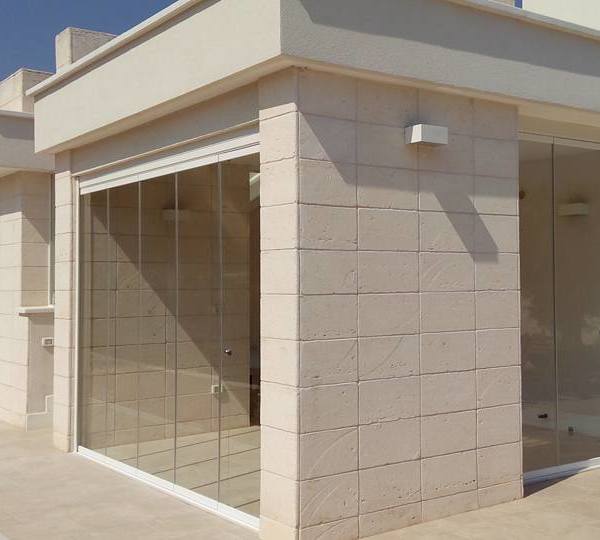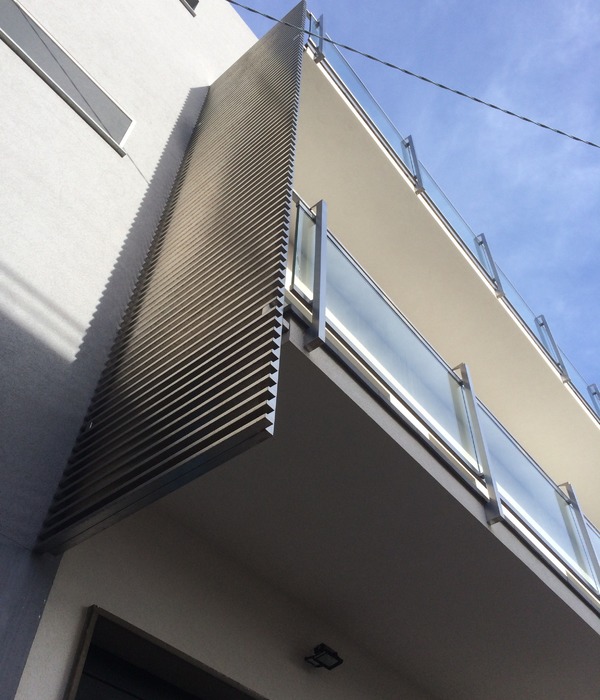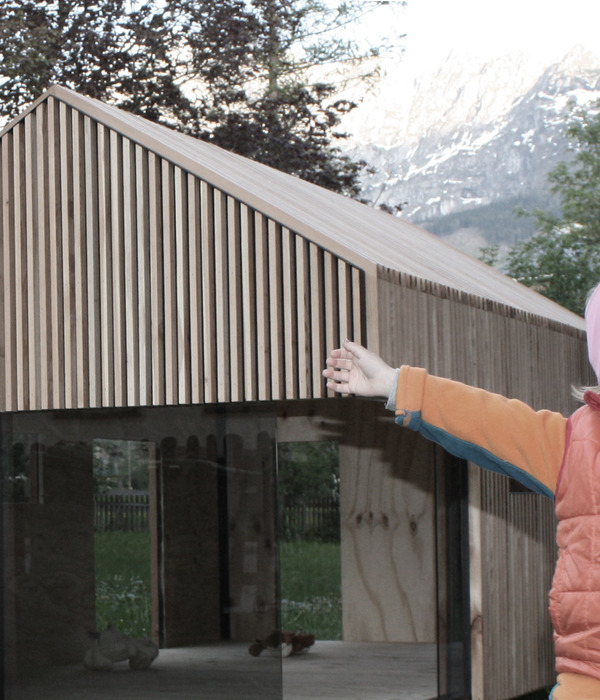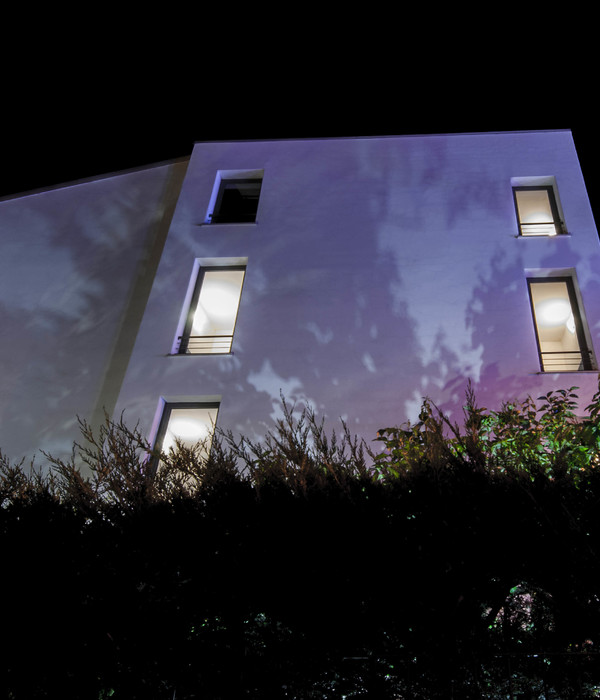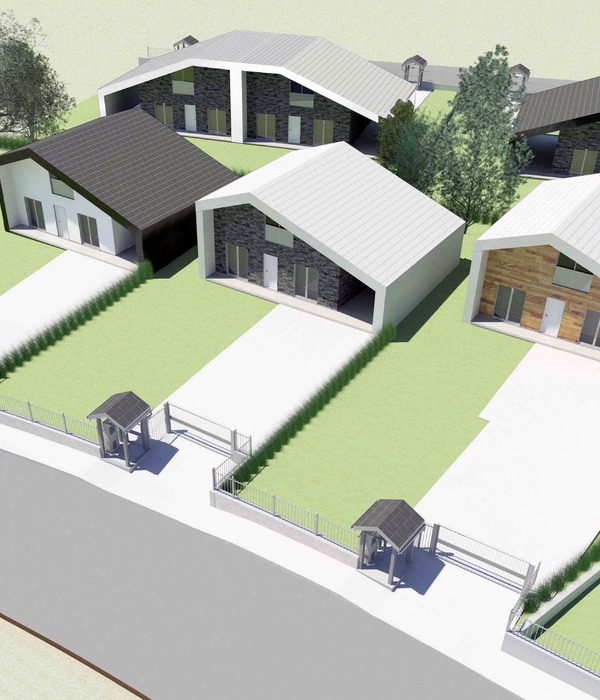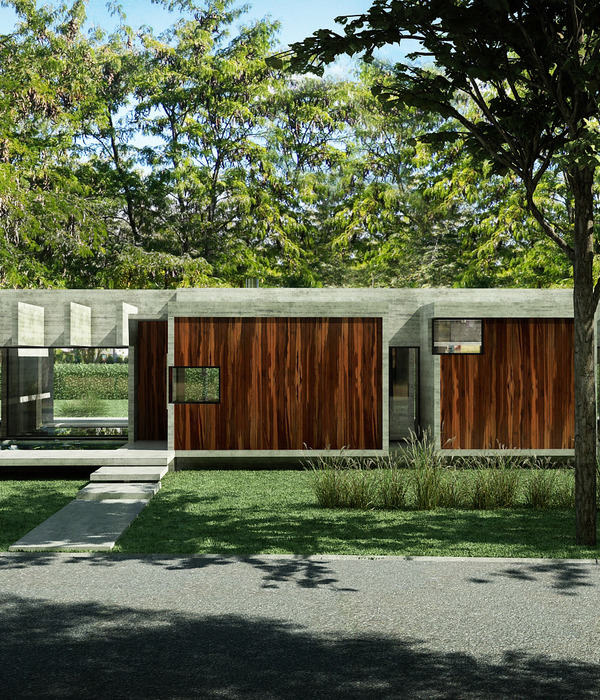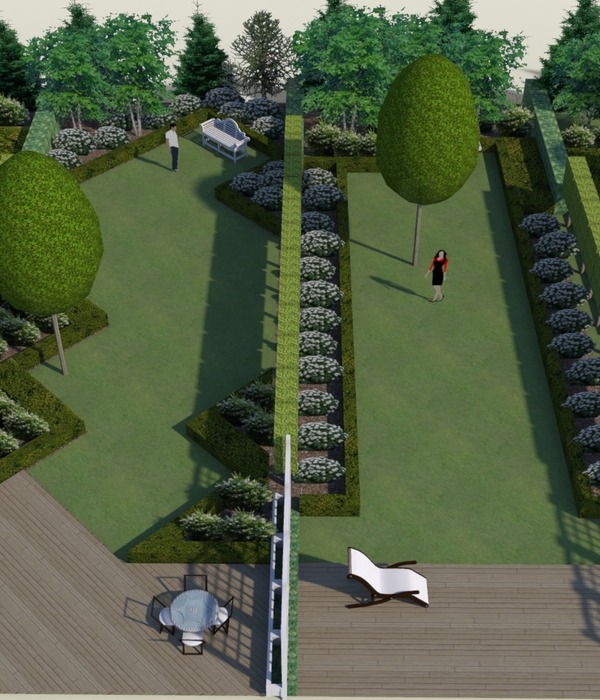在Pflersch和Wipptal之间,比Gossensaß村庄中心海拔略高的一块基地上,Pedevilla Architects为一个年轻的家庭设计了一栋住宅。
At the junction between Pflersch and Wipptal, a little above the center of Gossensaß village (1,100m above sea level), Pedevilla Architects designed the home of a young family.
▼建筑与山坡 building and the mountain slope ©Gustav Willeit
统一的结构主要朝垂直方向伸展,呼应了陡峭的地形。建筑由轻质保温混凝土制成,该材料可以满足所有建造要求,抵御项目所在地区严酷的气候条件。住宅如同塔楼一般的外形不仅减小了占地面积,同时在底层和顶层分别形成了通向室内的入口。
The monolithic structure, which evolves primarily into the vertical while following the steep terrain, is made of insulating lightweight concrete – a material that responds to all requirements and braves the harsh conditions of its exposed location. The house’s tower- like shape resulted not only in a small footprint but also created ground-level accesses on both the lowest and top floor.
▼建筑外观,external view of the building ©Gustav Willeit
▼混凝土墙面和细部 concrete wall and details ©Gustav Willeit
这座低能耗住宅获得了KlimaHaus A级认证,其结构源于项目植根的土壤和环境。通过使用矿物材料,建筑获得了优秀的耐久性。75厘米厚的墙体为巨石一般的体量提供了安全保护。精确的开窗对准了周边特定的山峦景观,深深的侧壁也成为了空间元素,使用者可以在这里或坐或卧,欣赏窗外美景。住宅的核心是一道紧凑的旋转楼梯,带领人们去往不同楼层。
The structure of the low-energy house, certified KlimaHaus A Nature, originates from the soil at its very location and is firmly rooted to it. Being built of mineral material, it offers expressive durability. The monolith’s 75cm thick walls provide protection and security. Precise openings allow targeted views into the surrounding mountain landscape, with deep jambs becoming spatial elements in their own right, which the residents are able to avail themselves of in everyday life for sitting, resting and observing. In the core of the house, the different floors are accesed by a compact spiral staircase.
▼深开窗,deep opening ©Gustav Willeit
▼开窗对准特定的景观,侧壁可供人休息,precise opening towards special view with deep jambs for people to rest ©Gustav Willeit
顶层位于六米高处,是开放的起居和休闲区域,上方是广阔的悬挑屋顶。空间由正面玻璃围合,形成了不受遮挡的全景视野。建筑的朝向、嵌入位置和景观,包括其宽敞的露台,共同创造出了一种生活在未受污染的山野之间的感觉。
Reaching up to 6 meters in height, the top floor forms an open living and lounge area, extending under the widely overhanging roof. A surrounding window provides an unobstructed panoramic view. Orientation, embedding and view – also from the spacious terrace – create the impression of living in an unspoiled place amidst the mountains.
▼悬挑屋顶和露台,overhanging roof and terrace ©Gustav Willeit
光滑的外墙由轻质保温混凝土制成,立面的所有功能,包括保护、隔热、支撑,全部融合在了一层墙体之中。屋面覆盖钻石形状的混凝土瓦片,两个入口处装饰以精细的木瓦,二者均采用传统工艺制作而成。建筑师对整座建筑的围护结构进行了统一设计,其颜色和形状令人想起附近森林中的树皮。
Within the smooth exterior walls, formed of insulating lightweight concrete, all the functions of the façade are merged into one single layer: protecting, insulating, and supporting. Diamond-shaped concrete tiles for the roof and wooden shingles refining the two entrances were both manufactured traditionally. The entire building envelope is designed monochromatically. Colors and shapes are reminiscent of the tree bark found in adjacent forests.
▼入口处的木瓦,wooden shingles at the entrance ©Gustav Willeit
室内同样使用自然、理性的材料,形成了一种脚踏实地的居家氛围。较低的三个楼层用材精细,创造出中性、明亮而又谦逊的环境。屋顶空间与之相反,以强有力的方式向外开放。这里的地面铺设未经处理的冷杉板,相同的材料也用在了窗、门和家居中,搭配以手工制作的水磨石表面和石灰膏,呈现出富有特色的场景。古铜色的黄铜与混凝土的颜色相协调,加上手工玻璃,共同赋予了住宅其所需要的耐久特性。
Natural, grounded materials also characterize the image inside and create a down-to-earth and homely atmosphere. The lower three floors are made of noble materials to create a neutral, bright and unobtrusive environment. The roof space, on the other hand, opens up in a particularly defined and powerful way. Untreated fir for floorings, windows, doors and furniture, handcrafted terrazzo surfaces as well as handcrafted lime plasters characterize the scene. Bronzed brass matched to the color of the concrete and handcrafted glass complement the material palette and give the home its desired durability.
▼起居空间,living space ©Gustav Willeit
▼全景视野,panoramic view ©Gustav Willeit
▼餐厅和厨房,dining space and the kitchen ©Gustav Willeit
▼空间中部的旋转楼梯间 spiral staircase in the center of the space ©Gustav Willeit
▼粗犷的材料,rough material ©Gustav Willeit
▼旋转楼梯,spiral staircase ©Gustav Willeit
▼卧室,bedroom ©Gustav Willeit
该住宅是第一座获得KlimaHaus A级认证的由轻质保温混凝土制成的整体建筑。该评级适用于整个意大利,基于严格的监测手段,评估了从材料生产过程的碳足迹到建筑居住舒适性的方方面面。建筑整体的能效甚至更高,可以满足KlimaHaus黄金评级。此认证表明建筑在生态、经济和可持续等方面达到了了当下的最高标准。
The residential building was the first monolithic building of insulating lightweight concrete to receive the KlimaHaus A Nature certification, achievable throughout Italy, which is based on a strictly monitored evaluation of, among other things, the carbon footprint throughout the whole manufacturing process of materials, reaching as far as for the living comfort. With the inclusion of intelligent building technology, the overall energy efficiency reaches the even higher classification KlimaHaus Gold. The certifications attest to the house’s current highest standard in terms of ecology, economy and sustainability.
▼区位图,location
©Pedevilla Architects
▼底层平面图,lower floor plan
©Pedevilla Architects
▼顶层平面图,top floor plan
©Pedevilla Architects
▼立面图,elevation
©Pedevilla Architects
▼剖面图,section
©Pedevilla Architects
client: private
location: Gossensaß / South Tyrol, Italy
volume: 1.700 m³
project und realization: 2019-2021
collaboration: Matteo Bolgan, Michael Rollmann
photographer: Gustav Willeit
{{item.text_origin}}


